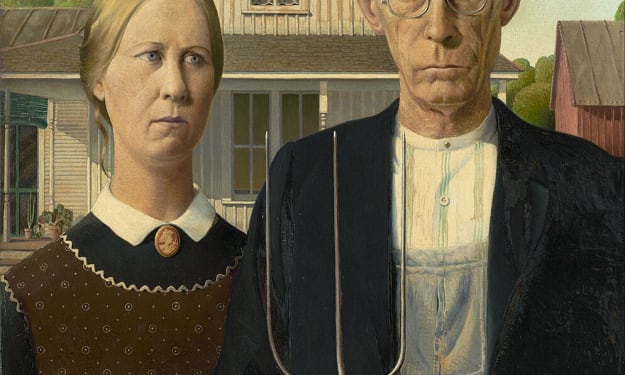*What Does It Feel Like to Die?*
Exploring the Stages and Scientific Insights of the Dying Process

The question of what it feels like to die is one that many are interested in, if not a little terrified about. Researchers are now closer than ever to understanding what really happens while you're dying. Recently, specialists studied the brains and bodies of dying individuals to gain new insights into the experience of death.
### Stage One: The Beginning of Active Dying
A new meta-analysis found that most people in the Western world will die in clinical settings, where the first sign of death is a loss of appetite and thirst. Doctors call this the beginning of active dying, characterized by an intense feeling of relaxation. During this stage, individuals can typically only manage small spoonfuls of food and water. This physical decline marks the transition from life to death, initiating a process that many medical professionals observe closely to provide comfort and care.
### Stage Two: Extreme Fatigue and Unconsciousness
As the dying process progresses, extreme fatigue and unconsciousness become prevalent. One study found that 72% of patients in this phase reported pre-death dreams, including reuniting with people who had already died. Additionally, 59% dreamed about preparing to travel somewhere, and 28% dreamed of significant past experiences. These pre-death dreams occur because individuals are mostly asleep or even slipping into unconsciousness. At this stage, if someone tries to wake you, nothing will happen. Studies of unconscious patients show that when they do eventually wake up, they often believe they were just sleeping. The fatigue during this phase is consistent, and sleep is no longer refreshing. The body's energy reserves are nearly depleted, leading to a continuous state of exhaustion.
### Stage Three: Seeing Light
During this stage, your heart will beat less strongly, your blood pressure will fall, and your organs, including your brain, will function less efficiently. Essentially, your brain is trying to conserve energy as it slowly dies, losing its inhibitory power. This loss of inhibition can lead to the phenomenon of seeing light, often reported by individuals who have had near-death experiences. Studies on rats and some human studies suggest that this light is caused by the brain's visual system firing as it loses control. This stage is marked by a significant decrease in physiological function, as the body begins to shut down systematically.
### Stage Four: The Last Breath
An unconscious person's breathing follows the automatic patterns produced by the brain's respiratory system, but without proper control over their mouth and throat, saliva builds up. The mixture of saliva and automatic rapid breaths creates loud breathing noises that many find unsettling. However, the dying person does not feel discomfort because they are deeply relaxed. This phenomenon, known as the "death rattle," signifies that the body is no longer able to clear secretions effectively. Despite the disturbing sound, it's important to understand that the person dying is not in distress.
### Stage Five: Brain Flooding
A recent study on rats dying from heart failure found that specific brain regions flooded with synchronized low gamma waves more coherent than when the rats were alive and healthy. These brain waves are similar to those seen during high-level cognitive activity. This discovery intrigued researchers about what happens in human brains as we die. A study of 567 dying individuals who had their brains monitored during CPR found that, like the rats, their brains fired intensely. Survivors reported clear experiences such as feeling separated from their body, observing events without pain, evaluating their lives, and reflecting on their choices.
Some patients reported knowing they were dying but felt they were heading towards a place that felt like home. Another study observed that the brain activity of a dying man was similar to those on the hallucinogenic drug DMT. However, revived individuals reported that their experiences felt different from hallucinations or dreams. This stage illustrates that even as the body shuts down, the brain may still engage in profound and vivid experiences, possibly providing a sense of closure or understanding.
### Conclusion
What goes through people's minds as they die? Are there common regrets or emotions? The dying process, as understood through scientific study, involves several stages that blend physiological decline with unique psychological experiences. If you know someone who has had such experiences, please leave a comment. I've put a lot of work into this article, which is part of my thesis, so please let me know how you find it.
Understanding the process of dying not only demystifies it but also helps us approach it with compassion and care, both for ourselves and for those we love. The more we learn about what it feels like to die, the better we can prepare for it and support those who are facing it.
If you know someone who has had such experiences, please leave a comment. I’ve put a lot of work into this article, which is part of my thesis, so please let me know how you find it.
Thank you very much for reading this article.
About the Creator
Written by Jonathan Leuthold
Writing has been my passion for years, and I’m beyond thrilled to be here! I adore writing, horses, dogs, and travel. I hope you enjoy what you read, and I can’t wait to see your amazing creations!
Enjoyed the story? Support the Creator.
Subscribe for free to receive all their stories in your feed. You could also pledge your support or give them a one-off tip, letting them know you appreciate their work.






Comments
There are no comments for this story
Be the first to respond and start the conversation.